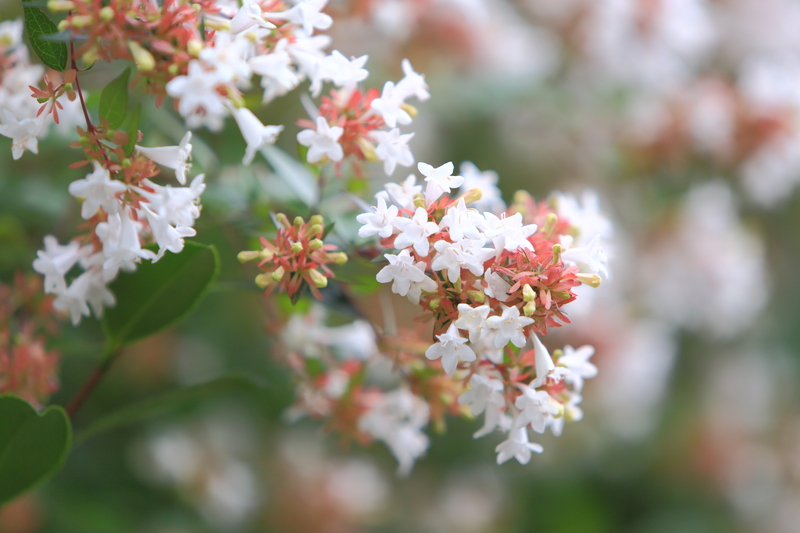Enriching Your Garden by Protecting Plants in Winter
Posted on 21/06/2025
Enriching Your Garden by Protecting Plants in Winter
If you're a passionate gardener, you know the importance of every season. But as the leaves fall and the nights lengthen, winter brings unique challenges that, if addressed thoughtfully, can help you create an even more enriched garden come spring. Let's dive deep into expert-approved strategies for protecting plants in winter and learn how to enhance your garden's health, resilience, and beauty through the colder months.

Why Is Winter Plant Protection Essential?
Winter weather poses multiple threats to both perennial and annual plants. While cold temperatures and frost are common culprits, fluctuating weather, dehydrating winds, and even warm winter days followed by sudden cold snaps can damage plant tissues. Careful winter plant protection is critical because:
- Cold injury can kill delicate buds and roots.
- Winter desiccation (drying out) from wind or sun exposure harms evergreens and broad-leaved plants.
- Freeze-thaw cycles can heave newly planted perennials out of the ground.
- Heavy snow and ice may physically break branches on trees and shrubs.
A well-protected garden in winter not only ensures plant survival but also lays the groundwork for a lush, vigorous spring garden, filled with healthy, robust growth.
Understanding Your Garden's Winter Risks
Before diving into winter plant protection techniques, assess your unique garden environment. Key factors include:
- USDA Hardiness Zone: Knowing your zone helps you select plants suitable for your region and anticipate winter lows.
- Microclimates: Does your garden have sun-trapped corners or wind-exposed areas?
- Soil Drainage: Poor drainage subjects roots to rot or ice damage.
- Wildlife: Hungry deer, rabbits, or rodents can devastate unprotected greenery.
Take notes about which areas typically get the most frost, which plants suffered last year, and where snow builds up. This knowledge is invaluable for successful overwintering plants.
Essential Steps to Protect Your Garden in Winter
Here is a comprehensive, step-by-step approach to enriching your garden by protecting plants in winter:
1. Mulching: Nature's Blanket
Applying a thick layer of mulch in late fall is one of the simplest and most effective methods for insulating plant roots against freezing temperatures. Mulch regulates soil temperatures, conserves moisture, and reduces heaving caused by freeze-thaw cycles.
- Best Materials: Straw, pine needles, compost, finely shredded bark, and leaves are ideal choices.
- Depth: Layer mulch 2-4 inches thick. For tender perennials, mound an extra inch over crowns.
- Timing: Wait until the ground has just started to freeze. Early mulching can attract rodents or trap moisture, leading to rot.
Mulching is crucial for winterizing garden beds and works especially well for roses, peonies, hostas, and young shrubs.
2. Watering Wisely Before Frost
Plants enter winter far healthier if they have proper moisture. Dry soil freezes faster than moist soil, and plants (especially evergreens) are less prone to winter desiccation if they're well hydrated.
- Give trees and shrubs a deep watering in late autumn before the ground freezes.
- Focus on newly planted or shallow-rooted species, as their roots are more vulnerable.
- Avoid overwatering, which can suffocate roots or attract disease.
Tip: Use soaker hoses or deep-root watering spikes for efficient, gentle soaking.
3. Physical Barriers: Shields Against Harsh Elements
Barriers are invaluable in protecting plants from wind, ice, and animal damage through winter:
- Burlap Wraps: Staple burlap around stakes to shield sensitive evergreens or broadleaf plants from windburn and sunscald.
- Cloches & Cold Frames: Individual glass or plastic covers guard small plants or seedlings from both frost and hungry critters.
- Chicken Wire & Fencing: Protect the trunks of immature trees and shrubs from deer rub and rodent gnawing.
- Snow Support: Teepees of stakes or special plant cages prevent damage to branches weighed down by heavy snow.
These barriers should be installed before severe winter weather arrives and can make all the difference for prized plants and delicate specimens.
4. Pruning: Health Through Careful Cutting
Prune dead or diseased branches in late autumn to prevent ice or wind from breaking them. However, avoid heavy pruning just before winter:
- Major pruning can stimulate new growth that won't survive harsh winter temperatures.
- Remove weak, crossing, or broken limbs to minimize breakage from snow and ice.
Regular, judicious pruning in fall improves the structural integrity of trees and shrubs against winter storms.
5. Selecting Hardy and Native Plant Varieties
The golden rule for winterproof gardening: Choose plants naturally adapted to your climate! Native and cold-hardy selections are:
- More resilient against temperature swings and frost.
- Less prone to disease and winter dieback.
- Lower maintenance and often provide habitat for local wildlife.
Consult your local extension office or nursery for recommendations on plants that thrive in your winter conditions.
Special Strategies for Unique Garden Areas
Protecting Container Plants
Container gardening brings greenery to patios and balconies, but potted plants are at greater risk of root freeze.
- Move pots to sheltered locations - up against the house, under eaves, or into garages, sheds, or cold frames.
- Insulate containers using bubble wrap, hessian fabric, or even old blankets and leaves piled around the pots.
- Elevate pots off cold concrete with bricks or pot feet to prevent waterlogging and ice damage.
With careful preparation, you can enjoy winter-hardy patio gardens year after year.
Protecting Perennials and Bulbs
- Cut back herbaceous perennials once frost shrivels foliage, leaving about 2 inches of stem as insulation.
- Leave ornamental grasses standing: This provides winter cover and enhances your winter landscape's visual interest.
- Mulch bulb beds deeply (especially for tulips, lilies, and dahlias) for consistent soil temperatures and protection from frost heaves.
Care for Trees and Shrubs
- Watering: Deep water newly planted trees and shrubs before freeze-up.
- Trunk Guards: Use plastic tree wraps or hardware cloth to prevent sunscald and feeding from rodents.
- Anti-desiccant spray: Apply to evergreens to reduce winter moisture loss.
Advanced Tips: Going the Extra Mile for Maximum Enrichment
Winter Composting
Don't let your compost pile languish under snow! Continue composting evergreen clippings, kitchen scraps, and autumn leaves. This adds nutrients that will jumpstart spring growth.
- Turn the pile occasionally to maintain airflow.
- Cover with a tarp to prevent excess moisture and keep decomposition active.
Snow as an Insulator
Embrace snow cover! A layer of snow acts as a natural mulch, protecting roots from deep freezes. Avoid shoveling snow laced with salt onto garden beds, as salt can harm plant roots.
Monitor, Don't Ignore
Throughout winter, periodically inspect your garden for damage or animal activity. Knock heavy snow off branches to prevent breakage, check barriers, and re-secure mulch or protective wrappings blown by wind.
Common Mistakes to Avoid When Protecting Plants in Winter
- Using plastic sheeting: It traps moisture and can encourage rot. Stick with breathable cloths like burlap.
- Applying fertilizer late in the season: New growth won't harden off before cold weather and is susceptible to injury.
- Skipping autumn cleanup: Leaving diseased foliage over winter harbors pests and pathogens.
- Forgetting to remove mulch in spring: As temperatures rise, excess mulch can smother new shoots and harbor mold.
- Neglecting to check on plants: Infrequent checks can allow minor issues to become major problems.
Frequently Asked Questions: Winter Plant Protection
How can I tell if my plant needs winter protection?
Plants native to your region or labeled as 'hardy' in your zone usually fare well. Tender perennials, newly planted trees and shrubs, and container plants will always benefit from extra protection.
What is the best mulch for winter protection?
Organic mulches like straw, chopped leaves, pine needles, or shredded bark are best. They insulate and improve soil structure. Avoid heavy, compacted materials that can smother plants.
Should I cover my plants every night?
Only cover plants during severe cold snaps, using breathable materials. Avoid leaving covers on during the day, as this can trap heat and moisture.
When should I start preparing my garden for winter?
Begin in late fall, once foliage dies back and temperatures drop consistently. This timing allows plants to harden off and ensures that you don't create habitats for unwanted pests.

Conclusion: Building a More Resilient, Beautiful Garden All Year Round
By making winter plant protection a cornerstone of your gardening routine, you're investing in the health, beauty, and productivity of your entire landscape. Enriching your garden by protecting plants in winter guarantees that, come spring, you'll enjoy vibrant blooms, vigorous foliage, and fewer losses due to winter stress. With these strategies in place, your garden will not only survive the winter but thrive year after year, rewarding you for your efforts with a flourishing outdoor sanctuary.
Take Action: Prepare Now for a Thriving Spring Garden
- Assess your garden's unique winter risks today
- Choose the best mulching and barrier methods for your plants
- Water deeply before the first freeze
- Prune wisely and remove debris
- Select hardy, climate-appropriate species
With proactive care and informed choices, protecting plants in winter becomes a powerful way to enrich your garden, ensuring its beauty and bounty for seasons to come. Happy winter gardening!
Latest Posts
Turning Soil into a Climate Change Ally with Gardening
Gardening Made Easy: Dive into the World of Containers
Step-by-Step Guide to Building the Best Garden Seating Areas

